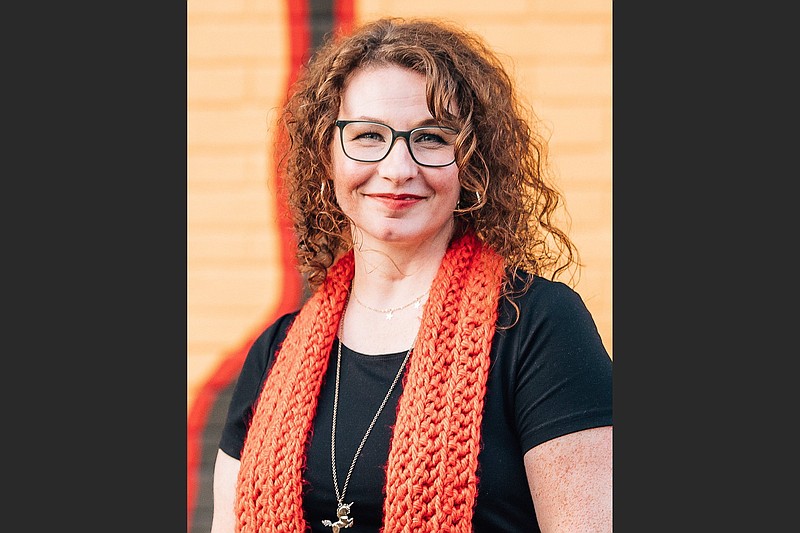This story is a part of The Article, your guide to Arkansas news and culture, presented by the Democrat-Gazette. Sign up for The Article's twice-weekly newsletter here or to see stories that have appeared in past newsletters, go here.
About 41% of Arkansas women and 35% of Arkansas men experience intimate partner physical violence, sexual violence or stalking in their lifetimes, according to the Centers for Disease Control and Prevention.
Here are the basics on how to get help in Arkansas if you or someone you know is experiencing abuse.
Signs of abuse
Brandy Dailey, community response facilitator for the Arkansas Coalition Against Domestic Violence, said seeking help starts by first recognizing warning signs a relationship is or may become abusive.
Extreme jealousy, possessiveness and frequent mood swings are red flags a relationship may be unhealthy, Dailey said, and one key quality that can distinguish an abusive relationship is the presence of fear.
“Every relationship ... will have degrees of arguments,” Dailey said. “It's when you start to fear the response from your partner that you start to enter that abusive relationship.”
Although issues such as substance abuse or mental illness may be part of abusive relationships, Dailey said domestic violence is about, more than anything else, “power and control.”
There are different kinds of abuse, and an individual who has never physically hurt their partner or family can still be abusive, Dailey said.
Forms of abuse include:
• Physical abuse (hitting, choking, punching)
• Emotional abuse (isolation, lack of trust/suspicion, threats of suicide)
• Verbal abuse (name-calling, put-downs, yelling)
• Financial abuse (controlling access to or stealing money, ruining credit)
• Sexual abuse (rape, inflicting unwanted pain during sex)
• Reproductive coercion (forcing a partner to become pregnant or terminate their pregnancy)
Help lines
If someone thinks they may be or are in an abusive relationship and wants assistance, Dailey said most start by calling a hotline. The statewide Domestic Violence 24-Hour Crisis Hotline can be reached at (501) 376-3219 or toll-free at (800) 332-4443. A national text-based hotline can be reached by texting HOME to 741741.
Once someone is in contact with an advocate through a hotline, Dailey said they will be connected to appropriate resources. In many cases, they may be connected to a local domestic violence shelter in their area.
The Arkansas Coalition Against Domestic Violence website also has direct links and numbers for different shelters. Services are not exclusive to women.
Dailey said anyone whose phone or internet history are monitored should use incognito mode and delete their browser history after visiting the site.
Local program options
Dailey said one of the most important things to know about contacting a local shelter is that they will not force or pressure a victim to do anything, including leave their home or report the abuse to law enforcement.
“We don't want to make someone feel like they have to leave the relationship or totally drastically disappear — go on to the underground so to speak — to escape what's going on at home, if that's not what works best for them,” Dailey said.
Although there are emergency shelters for people who want to leave their home, Dailey said that is far from the only thing a shelter organization can offer.
Megan McBroome, community outreach and marketing associate for Women and Children First, said the Central Arkansas-based organization offers support groups, legal advocacy and children’s programs. An individual does not need to be staying at the shelter to receive assistance.
Women and Children First also works to connect people to services from other organizations in Central Arkansas, to get help with things such as pregnancy, transportation or sobriety.
Another major part of what advocates do is to work with victims to develop safety plans, even if the individual doesn't have intentions to permanently leave home.
“A lot of our programs are centered around meeting victims where they are,” Dailey said “If they do need to stay at home, whether it's because of custody issues with their children, financial obligations. cultural obligations, or even if they just love the person, we want to make sure that safety is the top consideration.”
If someone decides they do want to leave their home and relationship, Dailey said organizations can help with getting documents such as birth certificates and ID cards and drafting a plan for getting to a safe place, whether that is the home of friends or family or a shelter.
McBroome said Women and Children First can even help someone get to a location out of the state, if that’s where they need to go.
“We're going to arrange that for them,” McBroome said. “Our main priority is making sure that a victim never goes unserved.”
For more information on resources in Arkansas and a list of shelters and advocacy organizations, visit the Arkansas Coalition Against Domestic Violence website.
